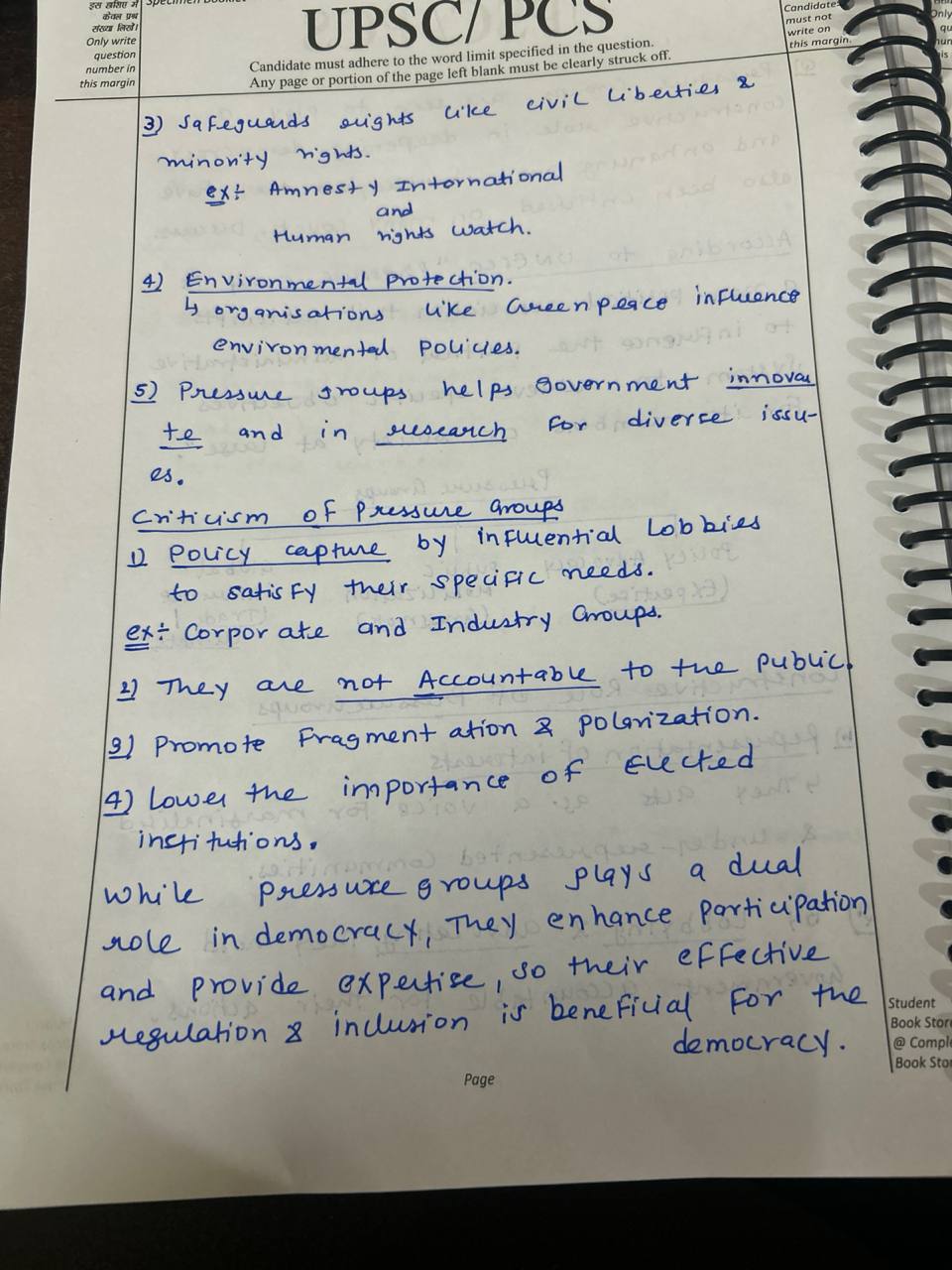Roadmap for Answer Writing Introduction (100-150 words) Briefly define what pressure groups are: Pressure groups are organized groups that seek to influence public policy without seeking political power themselves. State the purpose of pressure groups: They aim to influence the legislative process, government ...
Model Answer Introduction Khap Panchayats are traditional caste-based councils primarily found in northern India, particularly in states like Haryana, Uttar Pradesh, and Rajasthan. These councils have been criticized for operating as extra-constitutional authorities, often making pronouncements thatRead more
Model Answer
Introduction
Khap Panchayats are traditional caste-based councils primarily found in northern India, particularly in states like Haryana, Uttar Pradesh, and Rajasthan. These councils have been criticized for operating as extra-constitutional authorities, often making pronouncements that lead to human rights violations, including honor killings and gender discrimination.
Legislative Actions
The Indian Parliament has enacted several laws aimed at protecting individual rights and prohibiting honor killings. Key legislations include:
- Indian Penal Code (IPC): Addresses various offenses, including those related to honor killings.
- Protection of Women from Domestic Violence Act (2005): Aims to protect women from domestic abuse, indirectly challenging Khap practices.
- Scheduled Castes and Scheduled Tribes (Prevention of Atrocities) Act (1989): Protects marginalized communities from discrimination and violence.
Despite these laws, their effectiveness is limited due to the entrenched influence of Khap Panchayats, which often operate outside the formal legal framework .
Executive Actions
The executive branch, including police and local administration, has taken steps to address human rights violations linked to Khap Panchayats. Actions include:
- Arresting individuals involved in honor killings.
- Ensuring the safety of victims and affected families.
However, these measures have often been reactive rather than proactive, with inadequate enforcement of existing laws .
Judicial Actions
The judiciary has played a crucial role in countering the influence of Khap Panchayats. Notable actions include:
- The Supreme Court’s ruling in Shakti Vahini v. Union of India (2018), which declared that Khap Panchayats cannot interfere in the marriages of consenting adults and laid down measures to combat honor killings.
- The judiciary has also taken suo motu cognizance of human rights violations, ordering investigations and protection for victims.
Conclusion
Despite legislative, executive, and judicial efforts, the influence of Khap Panchayats continues, largely due to deep-rooted patriarchal norms and socio-political power dynamics in rural areas. To effectively combat these issues, it is essential to raise awareness about the unconstitutionality of Khap actions, empower local law enforcement, and promote social change to challenge regressive customs.
See less


Model Answers Introduction Pressure groups in India, organized groups seeking to influence public policy, have played a crucial role in shaping the country's democratic processes. Their influence has evolved over time, driven by various factors such as human rights advocacy, administrative reforms,Read more
Model Answers
Introduction
Pressure groups in India, organized groups seeking to influence public policy, have played a crucial role in shaping the country’s democratic processes. Their influence has evolved over time, driven by various factors such as human rights advocacy, administrative reforms, and economic liberalization.
Factors Contributing to the Growth of Pressure Groups
Challenges to Pressure Groups’ Influence
Despite their growing prominence, pressure groups face challenges, such as government crackdowns on foreign-funded NGOs and accusations of being politically motivated.
Conclusion
In conclusion, while pressure groups in India have seen increased influence over time, their role remains complex, with both growing opportunities and challenges in shaping public policy.
See less